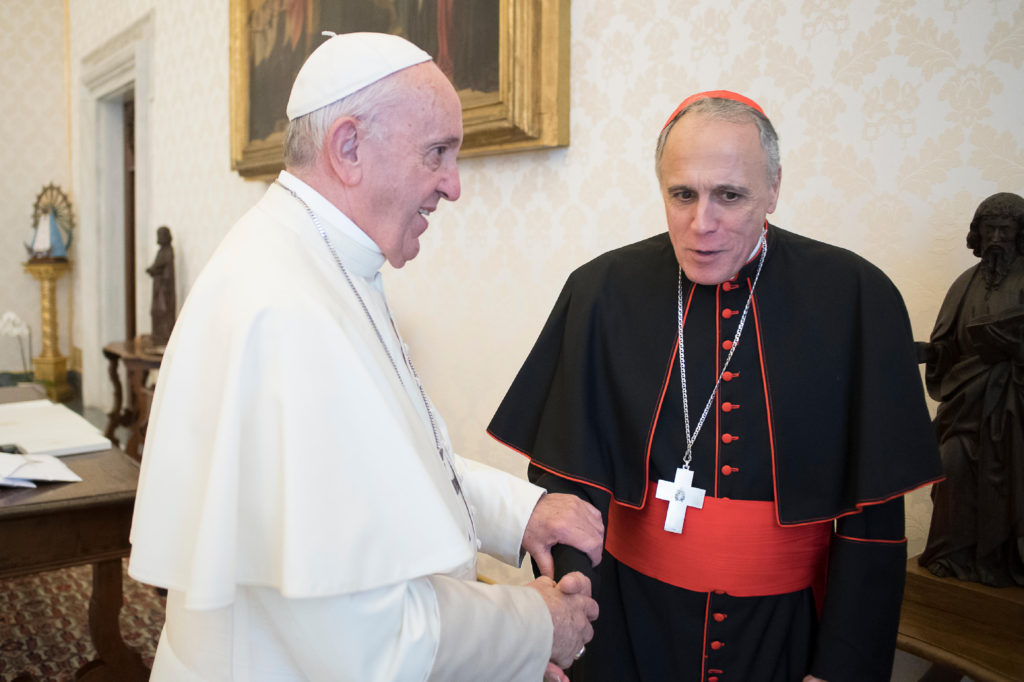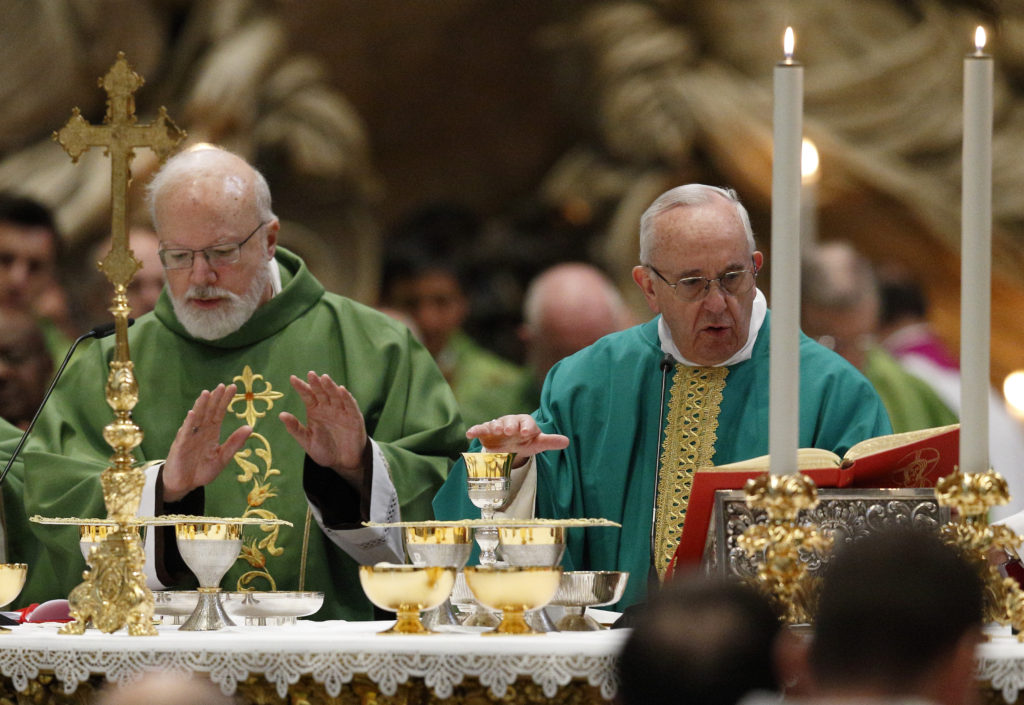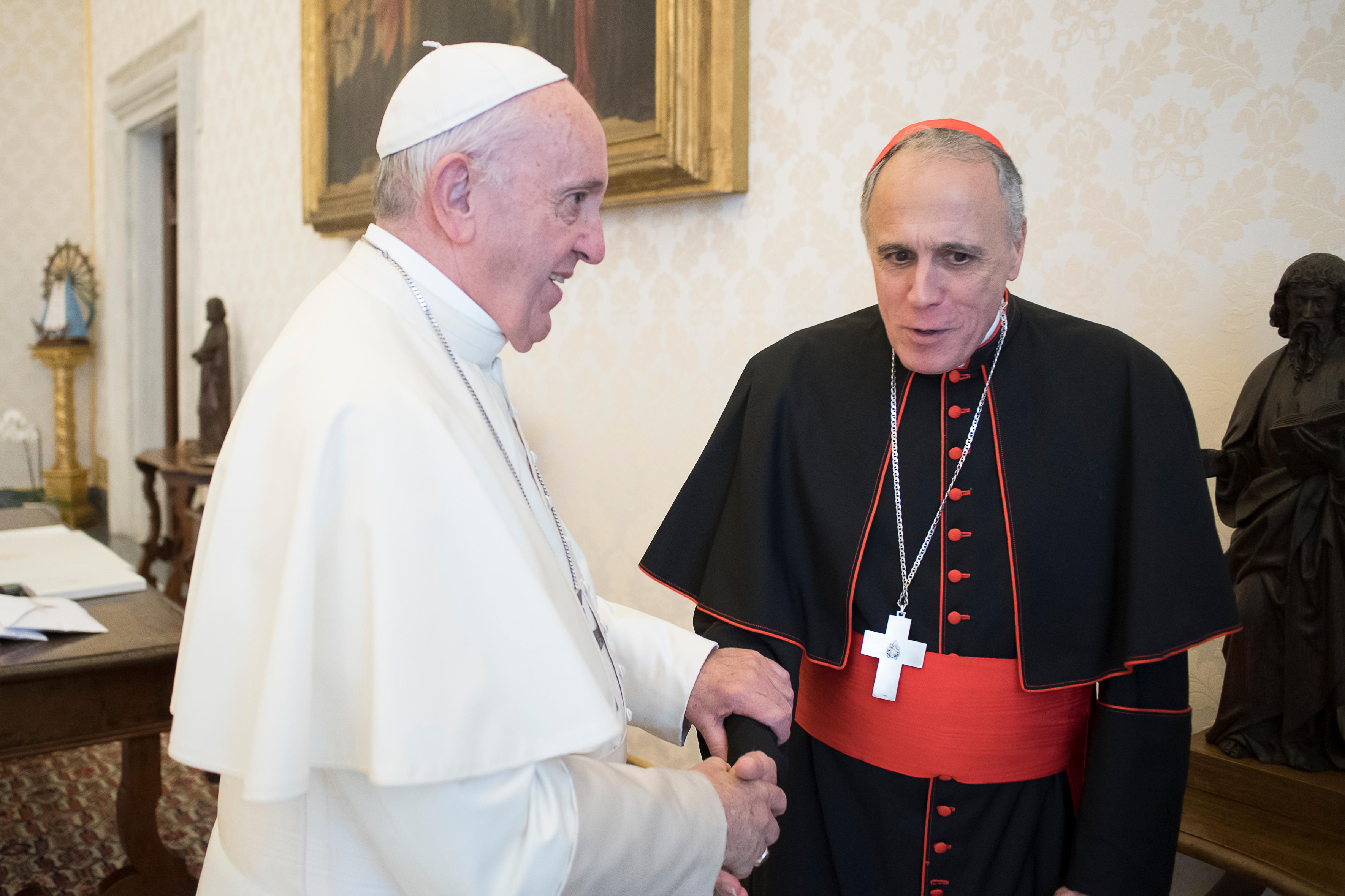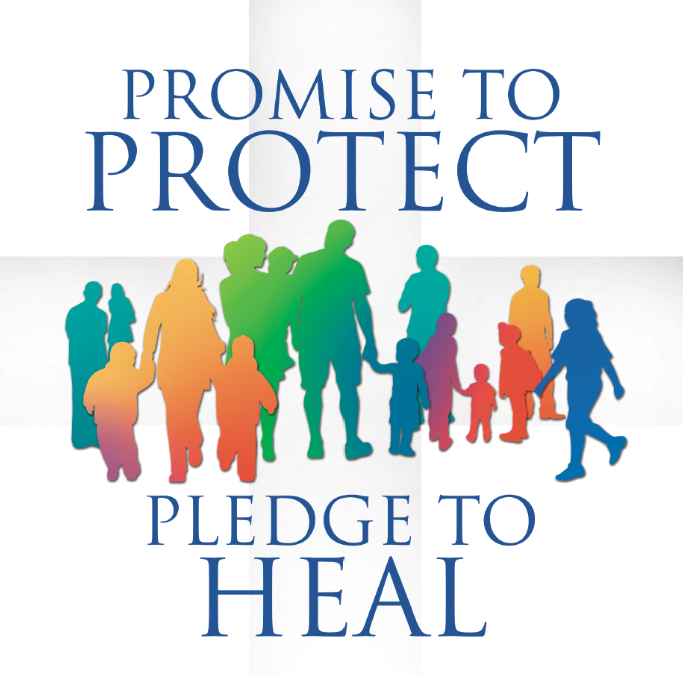
Office of Child and Youth Protection
The Diocese of Phoenix encourages anyone who has been a victim of child sexual abuse or knows of any abuse by any employee or volunteer of the Roman Catholic Church to come forward by reporting to law enforcement, the Department of Child Safety and the Office of Child and Youth Protection.
Safe Environment Training
The mission of the Safe Environment Training Office is to prevent sexual, physical or emotional abuse and/or neglect of children and young people through continued education, building awareness, and maintaining a commitment to keeping all children and young people safe.
By Carol Glatz and Cindy Wooden
Catholic News Service
VATICAN CITY (CNS) — Pope Francis is calling the presidents of every Catholic bishops’ conference in the world to Rome Feb. 21-24 to discuss the prevention of the abuse of minors and vulnerable adults.
The Vatican made the announcement Sept. 12 after the pope and members of his international Council of Cardinals wrapped up three days of meetings.
After hearing from his council, the pope “decided to convoke a meeting with the presidents of the bishops’ conferences of the Catholic Church on the theme of the protection of minors,” the council said in a written communiqué.
The members present “extensively reflected together with the Holy Father on the matters of abuse” during their deliberations Sept. 10-12. Cardinal Sean P. O’Malley of Boston, president of the Pontifical Commission for the Protection of Minors, also updated those present with the commission’s ongoing efforts.
The pope will also meet Sept. 13 with Cardinal Daniel N. DiNardo of Galveston-Houston, president of the U.S. Conference of Catholic Bishops, and with Cardinal O’Malley, the Vatican press office announced.
Archbishop José H. Gómez of Los Angeles, vice president of the USCCB, and Msgr. J. Brian Bransfield, general secretary of the conference, also will participate in the meeting, said Greg Burke, director of the Vatican press office.
Cardinal DiNardo had said in a statement Aug. 16 that he was requesting a meeting at the Vatican following the release of the Pennsylvania grand jury report on the mishandling of hundreds of cases of sexual abuse in six dioceses and after news was released that allegations of child sexual abuse committed by Archbishop Theodore E. McCarrick, the former cardinal-archbishop of Washington, were found credible.
The USCCB Executive Committee, Cardinal DiNardo had said, met recently and established three goals: “an investigation into the questions surrounding Archbishop McCarrick; an opening of new and confidential channels for reporting complaints against bishops; and advocacy for more effective resolution of future complaints.”
Achieving the goals, he had said, would involve “consultation with experts, laity and clergy, as well as the Vatican. We will present this plan to the full body of bishops in our November meeting. In addition, I will travel to Rome to present these goals and criteria to the Holy See, and to urge further concrete steps based on them.”
“The overarching goal in all of this,” he had said, “is stronger protections against predators in the Church and anyone who would conceal them, protections that will hold bishops to the highest standards of transparency and accountability.”

Three of the nine council members were absent for the meetings: Cardinal George Pell, 77, who currently is on trial in Australia on sex abuse charges; Cardinal Francisco Javier Errazuriz Ossa, 85, retired archbishop of Santiago, Chile, who is facing questioning over his handling of abuse allegations; and Cardinal Laurent Monsengwo Pasinya of Kinshasa, Congo, who turns 79 in early October.
The six present for the September meeting were: Cardinals O’Malley, 74; Pietro Parolin, 63, Vatican secretary of state; Oscar Rodríguez Maradiaga, 75, of Tegucigalpa, Honduras; Oswald Gracias, 73, of Mumbai, India; Reinhard Marx, 64, of Munich and Freising, Germany; and Giuseppe Bertello, 75, president of the commission governing Vatican City State.
The papally appointed group of nine cardinal members, the so-called C9, has been tasked with helping advise the pope on the reform of the Vatican’s organization and Church governance.
The council said in its communiqué that, concerning work on the reform of the Curia, it finished “rereading the texts already prepared (and) also called attention to the pastoral care of personnel who work there,” in the Roman Curia.
Paloma Garcia Ovejero, vice director of the Vatican press office, told reporters that a major part of the council’s work was making final changes to the draft of the apostolic constitution that would govern the Curia.
The document, provisionally titled “Praedicate Evangelium (Preach the Gospel),” is still set for further “stylistic editing” and canonical review, she said.
Pope Francis reviewed for his considerations the finalized draft at their last meeting in June. The draft document emphasizes four points: the Curia is at the service of the pope and the local Churches throughout the world; the work of the Curia must have a pastoral character; the new section in the Vatican Secretariat of State would oversee the training, assigning and ministry of Vatican nuncios and diplomats around the world; and the proclamation of the Gospel and a missionary spirit must characterize the activity of the Curia.
Garcia Ovejero reiterated the council’s last written statement from Sept. 10 in which the members asked Pope Francis for a reflection on “the work, structure and composition of the council itself, also taking into account the advanced age of some of its members.”
The six again “expressed full solidarity with Pope Francis for what has happened in the last few weeks,” she said.
In response to questions, she said there was no word yet on the expected release of the “possible and necessary clarifications” the council said were being formulated by the Holy See given the current debate on abuse in the Church.
The council will meet again Dec. 10-12.








